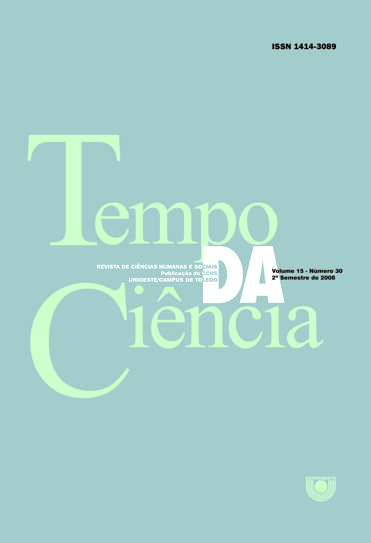Corpo, poder e resistência: o diálogo possível entre Foucault e Reich
DOI:
https://doi.org/10.48075/rtc.v15i30.1980Keywords:
Corpo, poder, subjetividade, Foucault, M., Reich, W.Abstract
Despite bearing an important contribution to the subject body and power – subject that has thus far been scarcely explored from a political science point of view –, Foucault’s work presents some problems, among which we point out embracing the concept of the body as excessively abstract. Echoing a difficult relationship that the human sciences have kept with the body in modern days, Foucault ultimately detaches the body from its biological traces. We repute that this view of the body devitalizes the subject and weakens the very idea of resistance that the French philosopher sustains in his work, reason why we propose, through an interdisciplinary dialogue, the adoption of another view of the body. It is in the work of Wilhelm Reich, as well as in some contemporary biologists and neurobiologists, that we will find the elements to think of the body as an especial materiality, alive and dynamic, which remits to a long evolutionary process, occupying a central spot in our so called superior life. Our hypothesis is that this living body, capable of contemplating bothsymbolic and social aspects, as well as biological and material aspects, can intensify Foucault’s idea of resistance, making the work of composing the self more efficient in its task of elaborating internalized means, capable of eluding the modern mechanisms of power: the body as an important ally against the methods of domination.
Downloads
Published
How to Cite
Issue
Section
License
Aviso de Direito Autoral Creative Commons
Política para Periódicos de Acesso Livre
Autores que publicam nesta revista concordam com os seguintes termos:
1. Autores mantém os direitos autorais e concedem à revista o direito de primeira publicação, com o trabalho simultaneamente licenciado sob a Licença Creative Commons Attribution que permite o compartilhamento do trabalho com reconhecimento da autoria e publicação inicial nesta revista.
2. Autores têm autorização para assumir contratos adicionais separadamente, para distribuição não-exclusiva da versão do trabalho publicada nesta revista (ex.: publicar em repositório institucional ou como capítulo de livro), com reconhecimento de autoria e publicação inicial nesta revista.
3. Autores têm permissão e são estimulados a publicar e distribuir seu trabalho online (ex.: em repositórios institucionais ou na sua página pessoal) a qualquer ponto antes ou durante o processo editorial, já que isso pode gerar alterações produtivas, bem como aumentar o impacto e a citação do trabalho publicado (Veja O Efeito do Acesso Livre).
Licença Creative Commons
Esta obra está licenciada com uma Licença Creative Commons Atribuição-NãoComercial-CompartilhaIgual 4.0 Internacional, o que permite compartilhar, copiar, distribuir, exibir, reproduzir, a totalidade ou partes desde que não tenha objetivo comercial e sejam citados os autores e a fonte.


